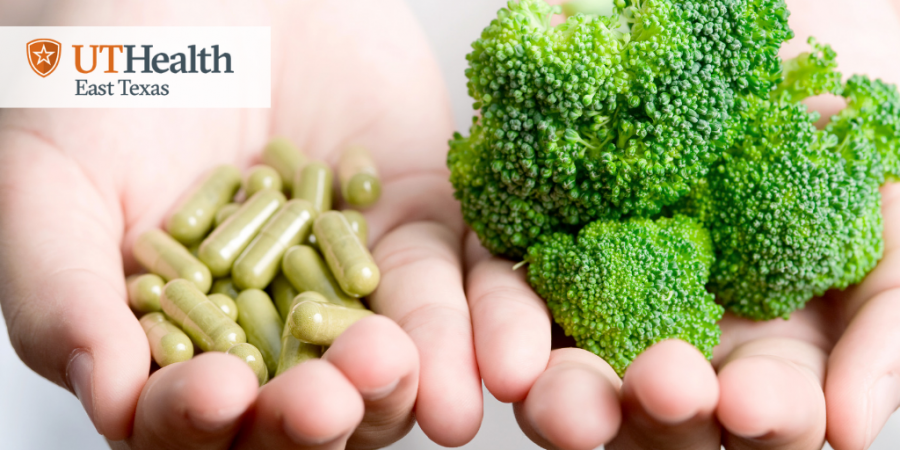
Supplements and multivitamins are taken by more than 100 million Americans, from women in their 20s to men in their 70s. Despite the popularity of these pills, studies have found that it’s best to get essential vitamins and nutrients from the foods we eat.
Most people who maintain a healthy diet with a variety of fruits, vegetables, legumes, whole grains, fish and lean meat are getting the nutrients they need. However, there are some circumstances in which increased levels of some vitamins and minerals are needed. The first step in determining what supplements are right for you is to speak to your physician.
What people need in their diet is dependent on a number of circumstances – whether or not they are on medications, their age, their lifestyle, medical history, diet and sex. These are all important to consider when picking up your weekly groceries and determining where some vitamin gaps may be.
Check out the list below to see what supplements you might want to bring up with your physician.
Vitamin D
Why It’s Needed: Vitamin D is produced in the skin and the best way to get it is a sunny stroll in the park. However, many Americans spend significant time indoors and don’t get enough sunshine to produce this vitamin. Vitamin D is important for healthy bones because it is needed to absorb calcium from the intestines. It may also reduce the risk of various neuromuscular problems, particularly falling.
Get It Naturally: Get vitamin D from spending time outside, eating oily fish and fortified dairy.
Through a Supplement: D3 is recommended as well as D2. Take supplements with a fatty meal.
Calcium
Why It’s Needed: Calcium is needed to grow and protect bones throughout a lifetime. It is the most abundant mineral in the body with 99% found in teeth and bones. A proper level of this mineral can help prevent osteoporosis.
Get It Naturally: Get calcium from milk, cheese and other dairy products.
Through a Supplement: Calcium carbonate or calcium citrate are recommended.
Fiber
Fiber is great in keeping your digestive system on track by preventing or relieving constipation. It can also help you maintain a healthy weight and lower your risk of diabetes and heart disease.
Get It Naturally: Fiber can be found in fruits, vegetables, whole grains, legumes, peas, beans, nuts and seeds.
Through a Supplement: To also help lower cholesterol levels, consider taking psyllium.
Men under the age of 50 need 38 grams daily. Men over 50 need 30 grams.
Women under the age of 50 need 25 grams daily. Women over 50 need 21 grams.
Fish Oil or Omega-3 Fatty Acids
Why It’s Needed: Omega-3 fatty acids play important roles in brain function, normal growth and development and inflammation. (Harvard Health) The American Heart Association recommends 1,000 mg of marine fatty acids DHA and EPA for people with coronary artery disease. It’s also good for those with major cardiac risk factors such as high blood pressure, abnormal cholesterol levels and diabetes.
Get It Naturally: Eat fatty fish like salmon, mackerel and sardines. Some plants are rich in another type of omega-3 fatty acid; good sources of these are flaxseeds, chia seeds, walnuts, pumpkin seeds and canola oil.
Through a Supplement: If you eat fish two to three times per week, a supplement is not needed. Avoid fish liver oil as it has high levels of vitamin A.
Studies are continuous in their search to discover the effectiveness of supplements. It is still much preferred to get all needed vitamins and nutrients through a healthy, balanced diet as supplements, no matter how many, cannot replace the benefits of fruits, vegetables and whole grains.
When making a change to your diet and/or wondering if supplements are right for you, consult your physician. To find a UT Health East Texas physician, call 903-596-DOCS.
